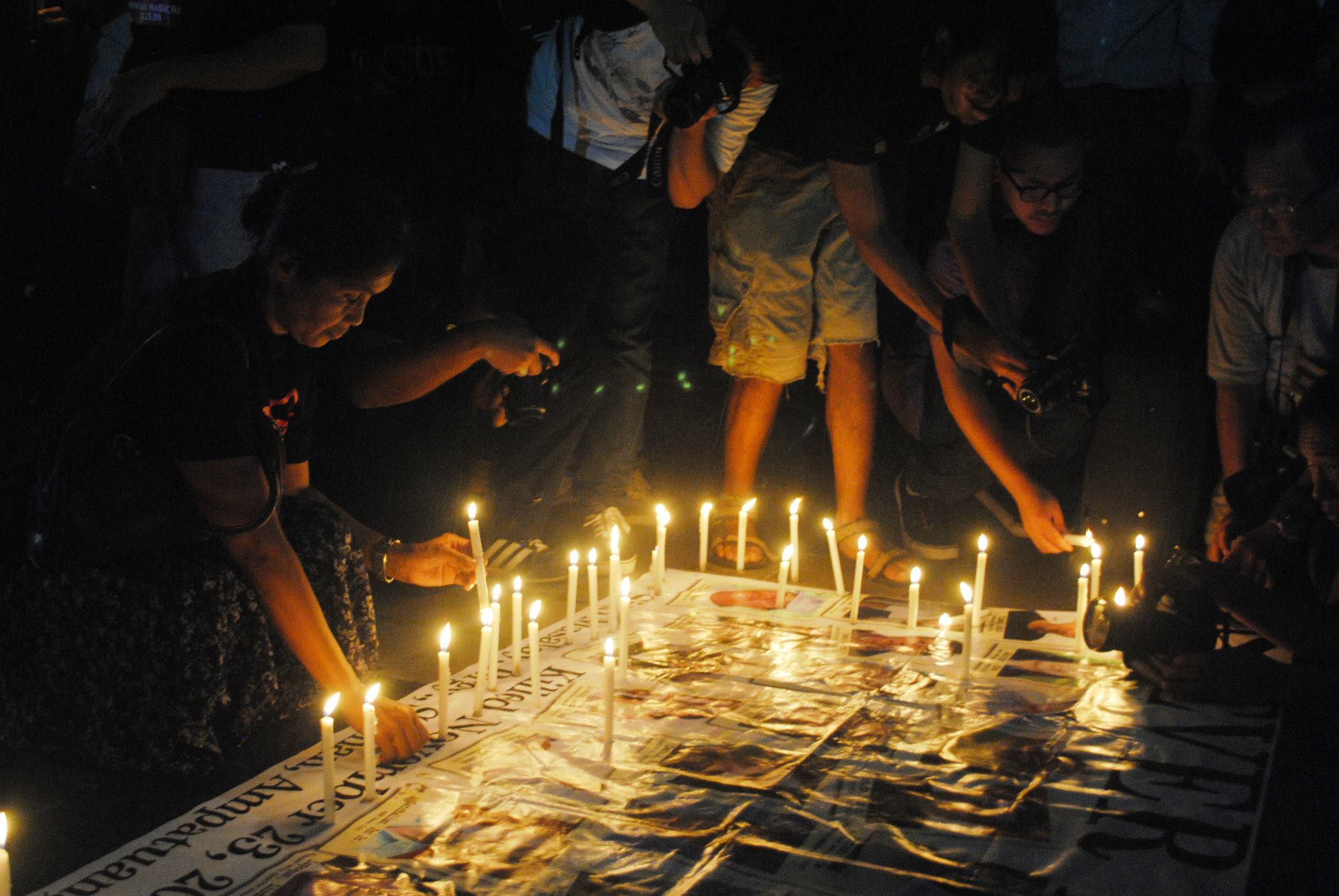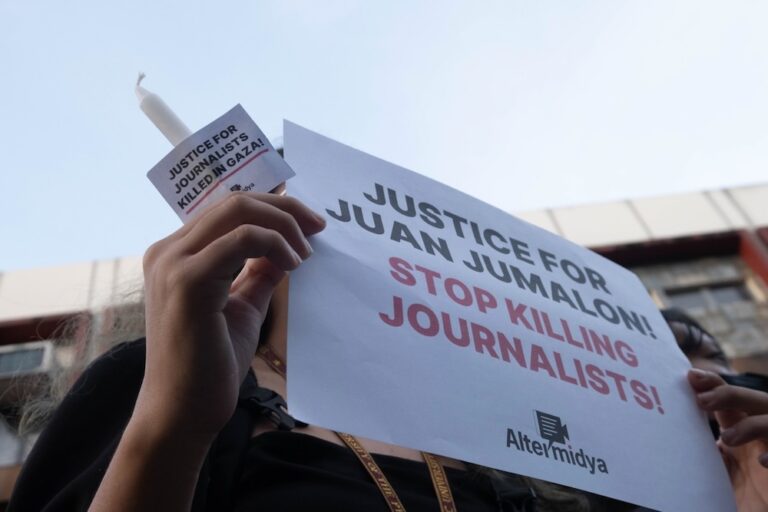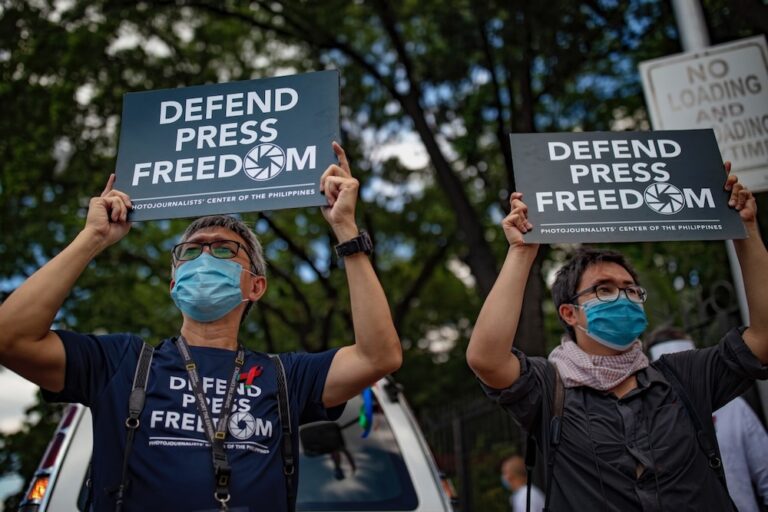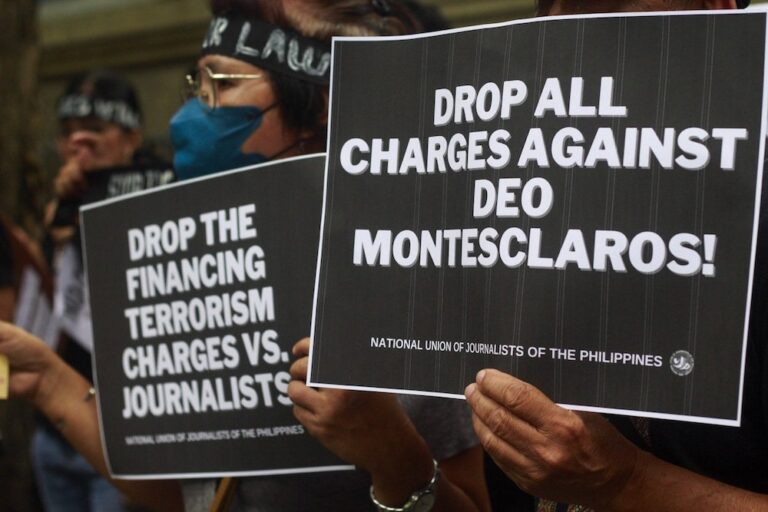The killing of journalists has become an international concern. Ironic that in this, the fifth year since the worst attack on journalists and media workers in world history, it has not merited the same level of expressed concern from the Philippine government.
This statement was originally published on cmfr-phil.org on 23 November 2014.
IN A disturbing – and irony-ridden – demonstration of official hostility to the Constitutional guarantee of press freedom, the Philippine National Police (PNP) has prevented journalists from covering the trial of the alleged masterminds and perpetrators of the November 23, 2009 Ampatuan Massacre since August this year without justification, and without even informing the media who ordered the ban.
Four journalists, meanwhile, were killed for their work in 2014, the fifth year since the worst attack on journalists in history occurred in Ampatuan town, Maguindanao province, bringing the total number of journalists killed for their work since Benigno Aquino III assumed the presidency to 25. It comes second to the 82 of the Arroyo administration which lasted nine years and included the Ampatuan Massacre victims.
In this same year, President Aquino again claimed, once during the April visit of US President Barack Obama to the Philippines, and again in a radio interview before his September visit to several European countries, that not all the journalists killed were slain for their work, and that not only some but many were killed for reasons that if made public would be embarrassing to their families. But CMFR’s findings show that the number of work-related killings at 145 since the restoration of democracy in February 1986 to be a matter of grave concern.
The ban on media coverage of the trial is an unconscionable assault on press freedom – the very right, so crucial to the state of democracy in this country. It is also an infringement on the public right to be informed on the proceedings of a trial whose outcome will be critical to the dismantling of impunity, or its persistence.
Impunity – defined internationally as “the impossibility, de jure or de facto, of bringing the perpetrators of violations to account” – is what drives the continuing killing of journalists and media workers in the Philippines. Impunity allows the cycle of criminality to continue as it is the failure to break it with punishment, with penalty and the imposition of reparation. Impunity however applies especially to those with the means to hire lawyers who can use the judicial system to evade conviction and delay trials.
Current data show 145 journalists and media workers out of 217 killed since 1986 were targeted for their work, and that any attempt to minimize the killings as assaults on press freedom makes ending the killings even more difficult. President Aquino would do well to reexamine the circumstances of the killings. CMFR has gathered enough information on every case to guide government reform and for the President to initiate policy action that will put a stop to the outrage that has severely damaged the country’s standing in the international community.
The President should hold to review the prosecution of the trial to determine whether it reflects the political will to see this trial to a credible conclusion – the conviction of the guilty and cause the just compensation of the complainants. Attacks on witnesses will affect the trial; so far three witnesses have died. The President should call for urgent action to improve the protection of the witnesses who are critical to the success of the trial.
Beyond that, President Aquino can also recall those recommendations, made as early as 2010, by the Freedom Fund for Filipino Journalists, Inc. (FFFJ), a coalition of the CMFR, the Kapisanan ng mga Brodkaster ng Pilipinas (KBP), the Philippine Center for Investigative Journalism (PCIJ), the Philippine Press Institute (PPI) and the Center for Community Journalism and Development (CCJD), that, among others, encourages the creation of a multi-sectoral quick response group to assist the PNP in obtaining relevant information whenever a journalist is killed.
The killing of journalists and media workers has become an international concern, impinging as it does on the universal imperative of defending and enhancing the human right to disseminate and receive information. Ironic that in this, the fifth year since the worst attack on journalists and media workers in world history, it has not merited the same level of expressed concern from the Philippine government.



